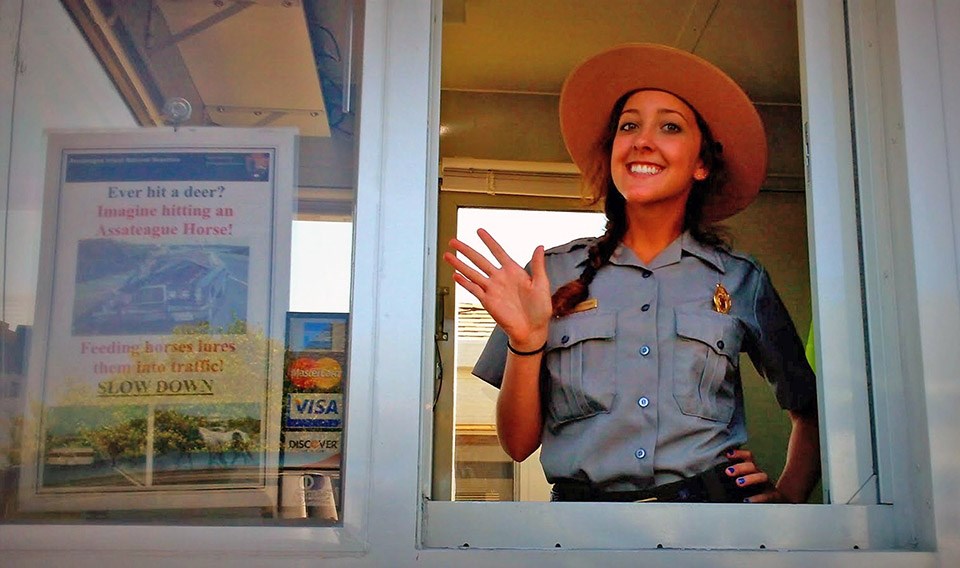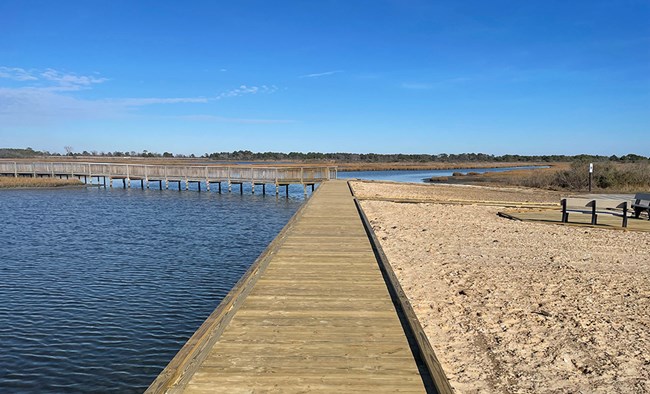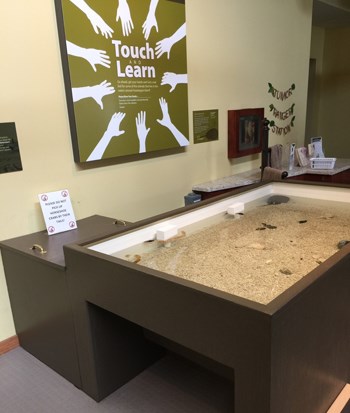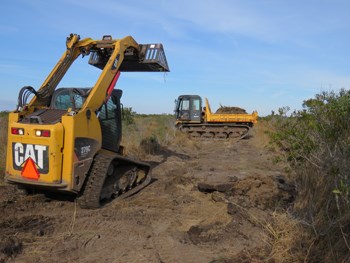
Your entrance fees support a wide variety of visitor services at Assateague Island National Seashore (including the projects featured below). Eighty percent of entrance fees, as well as camping and other fees, stay at Assateague to be used for improvements, repairs, and rehabilitation projects that directly affect visitors. The remaining 20 percent is shared among parks that cannot collect fees. Types of fee-funded projects include:
Find out more about how recreation fees provide a vital source of revenue for improving facilities and services for park visitors at the National Park Service - Your Fee Dollars at Work page. How Are Tax Dollars Used? Your taxes help offset the costs of operating special places like Assateague Island National Seashore, however they do not cover all of the costs. The number of visitors continues to climb due to the popularity of our national treasures, and the expenses to maintain and staff the parks rise each year. Government funding available for necessities such as road and building repairs, campground maintenance, visitor and resource protection and other services has not kept pace with demand. Federal Lands Recreational Enhancement Act, created by Congress, permits some National Park Service sites to collect entrance and amenities fees to address this shortfall and spread some of the operating costs among the people who directly use the parks. 
NPS Repair of Storm Damaged Parking Lots in the Virginia DistrictA rising sea level and frequent severe storms are becoming more commonplace and providing immediate visitor access is becoming more challenging after each storm. In September 2023, crushed clamshell was used to repair the parking lot which reduces storm runoff and is more sustainable than asphalt.
NPS Photo Old Ferry Landing Renovation Improves Visitor Safety and Increases Storm ResilienceThe Old Ferry Landing construction project was completed and the area reopened in December of 2022. This project raised the existing bulkhead approximately two feet and replaced deteriorating boardwalks at this popular crabbing spot and kayak launch. Work will continue throughout the winter to improve visitor amenities and signage. The improved, raised bulkhead and new boardwalks will provide much needed resilience during storms and high tides that have damaged Old Ferry Landing over the years. Your Fee Dollars made these improvements possible!
NPS Improved Accessibility to the Viewshed at the Barrier Island Visitor Center Provides Visitors with Increased Accessible Viewing ExperiencesAn elevated walkway and platform behind the Assateague Island Visitor Center were completed in September 2022. The short walkway to a platform overlooking the Sinepuxent Bay and Assateague Island is ADA accessible and provides excellent opportunities for viewing coastal bay and salt marsh ecosystems and wildlife. Breathtaking views of the bay and island allow visitors to create a deeper connection with the natural resources the NPS is protecting.
NPS Providing Visitors with Expanded Opportunities to Experience Ocean CreaturesFrom open ocean to protected estuary, the National Seashore protects a diverse array of aquatic habitats including abundant sea grass beds, expansive salt marshes, and a mosaic of sandy shallows and intertidal flats. These protected habitats support rich marine life. Aquarium and touch tank exhibits in Assateague’s visitor centers provide underwater windows to this unseen world. Touch tanks provide a unique, memorable, first-hand experience for visitors to learn about the often unknown and misunderstood local marine residents.The Assateague Island Visitor Center hosts over 250,000 visitors annually. This larger, improved touch tank design provides additional visitor access, including wheelchair access and improved pedestrian traffic flow around this busy area of the visitor center. The larger tank, with an improved filtration system provides the aquatic marine creatures with improved water quality, greater freedom of movement and better overall tank health. 
NPS Habitat Restoration Project Improves the Visitor ExperienceThousands of visitors explore the backcountry areas of Assateague Island National Seashore (ASIS) each year to experience unique barrier island habitats and to enjoy camping, photography, bird watching and nature study. Prior to the establishment of the National Seashore, private developers installed a network of roads and ditches that were intended to support as many as 5,800 housing lots and related infrastructure. Although these development plans failed, many of these manmade features remain today as scars on the natural landscape. An abandoned asphalt roadway is one of the most significant features that remain in the ASIS backcountry. This roadway detracts from the visitor experience, interferes with natural barrier island processes, and negatively affects the character of the ASIS wilderness area. To mitigate these impacts and restore native habitats, the NPS began removing sections of this roadway in 2017 as part of this Federal Lands Recreation Enhancement Act project. Successful removal and restoration will improve the visitor experience and provide enhanced opportunities for photography, bird watching and wildlife viewing across the ASIS backcountry. Restoration activities will also enhance habitat conditions for two federally threatened species including Sea Beach Amaranth and Piping Plover. |
Last updated: November 15, 2024
